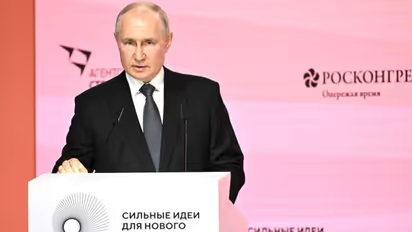Six people like Yevgeny Prigozhin who dared to stand up to Vladimir Putin, but met with dire outcomes

Synopsis
Girish Linganna lists instances where individuals critical of Russian President Vladimir Putin have faced dangerous outcomes. There have been cases of suspicious deaths, poisonings and trials, which have raised concerns about the involvement of government entities.
The death of Yevgeny Prigozhin, the leader of the Russian mercenary group Wagner, in a plane crash on August 23 north of Moscow has once again thrown the spotlight on how those who dared to stand up against Russian President Vladimir Putin or his interests have faced situations of dire outcomes, sometimes even fatal.
Let us take a look at some of those who have been at the receiving end:
Alexei Navalny
Russia’s main Opposition leader, Alexei Navalny, was sent to Germany in August 2020 for medical care after being poisoned in Siberia with a nerve agent known as Novichok, according to Western experts. Russia has denied any responsibility.
Navalny had gained global respect for choosing to come back to Russia in 2021, where he was promptly arrested upon arrival. He is currently serving an 11-and-a-half-year sentence on charges he claims are false. His political group has been banned and labeled ‘extremist’. Navalny’s prison term was recently extended by an additional 19 years in a high-security penal colony.
Sergei Skripal
Sergei Skripal, a former Russian double agent who shared information with the British intelligence, along with his daughter, Yulia, were discovered unconscious on a bench near a shopping centre in Salisbury, England, in March 2018. They were rushed to hospital in a serious condition. The British authorities confirmed that they had been poisoned with Novichok, a series of nerve agents created by the Soviet military during the 1970s and 1980s. Fortunately, both of them survived. Russia denied involvement in the poisoning, stating that Britain was generating anti-Russian panic.
Alexander Litvinenko
Alexander Litvinenko, a former KGB agent who openly criticized Putin, died in 2006 at age 43. The British authorities stated that he had consumed green tea containing polonium-210, a strong radioactive substance, at London’s Millennium Hotel.
A British investigation in 2016 suggested that Putin possibly authorized the assassination, although the Kremlin has denied any role in it. A British judge’s inquiry revealed that ex-KGB bodyguard Andrei Lugovoy and another Russian, named Dmitry Kovtun, were responsible for the killing. The operation was likely directed by Russia’s Federal Security Service (FSB), the successor to the Soviet-era KGB. Exactly six years before his poisoning, Litvinenko had left Russia and moved to Britain.
Viktor Yushchenko
Viktor Yushchenko, an Opposition leader in Ukraine, was poisoned while campaigning for the 2004 presidential election. He was running with a pro-Western stance against Viktor Yanukovich, who was pro-Moscow Prime Minister at the time.
Yushchenko claimed he was poisoned during a dinner with Ukrainian security officials outside Kyiv. Russia denied any role. They discovered his body had 1,000 times the usual amount of dioxin. The poisoning disfigured his face and body, leading to numerous surgeries afterwards. Following street protests known as the ‘Orange Revolution’, Ukraine’s Supreme Court overturned the initial results that had declared Yanukovich the winner. Yushchenko then secured the presidency through a re-run election.
Anna Politkovskaya
On October 7, 2006, Anna Politkovskaya, a journalist who exposed human rights violations, was fatally shot outside her Moscow apartment. She had just returned from the supermarket. The killing of Anna Politkovskaya, a 48-year-old mother of two, sparked outrage in the Western world and highlighted worries about the risks faced by journalists operating in Russia.
Alexander Perepilichny
In November 2012, the 44-year-old Russian was discovered deceased close to his upscale residence within a private gated estate near London. He had been out for a jog before his death. Having aided a Swiss inquiry into a Russian money-laundering plot, Alexander Perepilichny had sought asylum in Britain in 2009. His unexpected death led to suspicions of possible foul play.
Although there were concerns he might have been poisoned with an uncommon toxin, the British authorities dismissed foul play. During a preliminary hearing, it was revealed that traces of a deadly poison derived from the gelsemium plant were discovered in his stomach. Perepilichny had consumed a significant portion of sorrel soup, a well-liked Russian dish. Russia denied any role in the matter.
Check the Breaking News Today and Latest News from across India and around the world. Stay updated with the latest World News and global developments from politics to economy and current affairs. Get in-depth coverage of China News, Europe News, Pakistan News, and South Asia News, along with top headlines from the UK and US. Follow expert analysis, international trends, and breaking updates from around the globe. Download the Asianet News Official App from the Android Play Store and iPhone App Store for accurate and timely news updates anytime, anywhere.